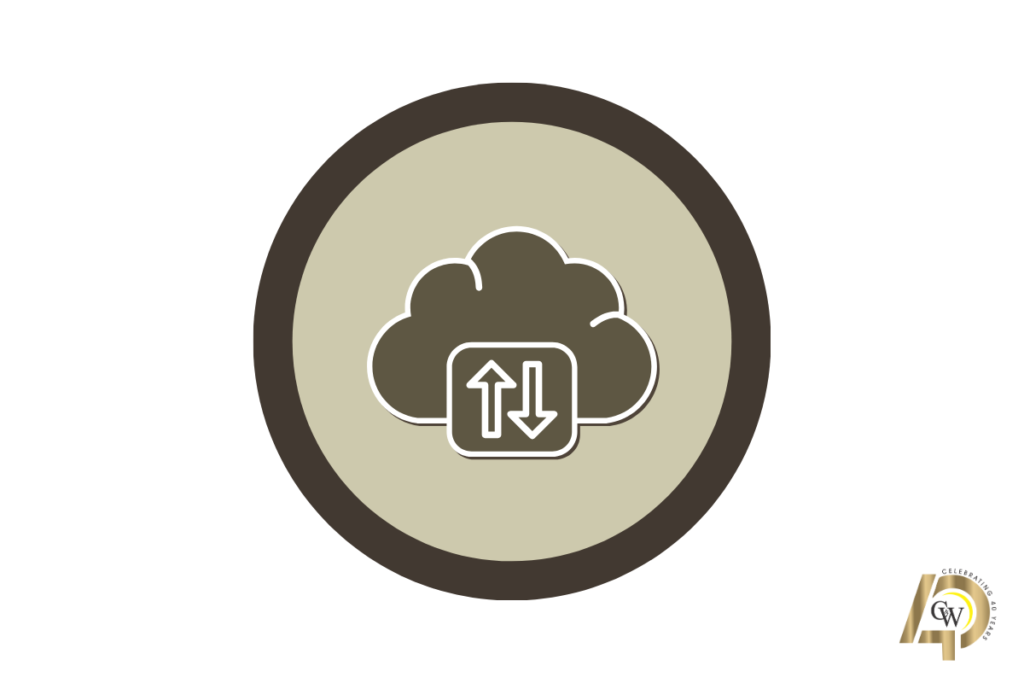IT Downtime – Top Solutions to Avoid IT Delays for Businesses

Struggling with IT downtime in your business? You’re not alone. These frustrating hold-ups can silently sabotage your productivity, drain your resources, and leave customers waiting. But what if you could identify the hidden causes behind these delays and take control before they disrupt your entire operation? In this article, we uncover the most common reasons for IT delays, reveal their real impact on your business, and share proven strategies to keep your systems running smoothly and efficiently. Get ready to transform your IT challenges into seamless solutions that empower your business growth.
Key Takeaways
IT downtime in businesses can arise from software incompatibility, network congestion, and insufficient staff training, leading to significant operational disruptions and financial losses.
Implementing proactive measures, such as regular software updates, continuous network support, and employee training, can significantly reduce IT downtime and enhance business efficiency.
Leveraging managed IT services offers small businesses comprehensive support, improves IT infrastructure management, and enables strategic IT planning to align technology with business goals.
IT downtime and delays can feel like a slow-moving storm, gradually crippling your business operations. These delays often stem from various underlying technology issues, each contributing to a cascade of residual delays that can disrupt your workflow. You can expect residual delays as a result of these ongoing issues.
Identifying these causes and their impacts is crucial for mitigating their effects on your business.
Common Causes of IT Delays
One of the most frequent culprits behind IT delays includes:
Software incompatibility, leading to inevitable software glitches that can disrupt daily operations.
Network congestion, which slows down IT operations and creates a backlog of tasks waiting to be processed.
Insufficient IT staff training, causing delays in resolving technical issues and prolonging disruptions.
Component failures and cyber-attacks are other significant contributors to IT downtime and delays. Proactive network management can help in early detection of these potential security breaches or performance issues, preventing a minor tech issue from becoming a major technology disruption.
However, lack of proper management skills and limited resources for upgrading hardware can also lead to prolonged IT delays, making it essential for businesses to invest in comprehensive IT support services.
Impact on Business Operations
The impact of IT delays on business operations can be severe. Financially, IT-related downtime can cost small businesses between $82,200 to $256,000 per event. This significant financial impact is compounded by the loss of customer trust and business opportunities, which can be detrimental to small business growth. It’s a stark reminder of how crucial it is for small businesses to avoid technology disruptions.
Moreover, frequent IT-related disruptions can reduce overall employee productivity and morale. Imagine your team struggling to complete tasks due to consistent IT issues; the frustration and decreased morale can lead to a decline in operational efficiency. Customer dissatisfaction may also arise from prolonged service interruptions, further impacting the company’s reputation.
For many businesses, operational costs can escalate due to emergency IT interventions during outages. This not only affects the bottom line but also disrupts normal operations, making it imperative for small business owners to have robust IT support services in place to maintain operational efficiency and ensure business continuity.
Proactive Measures to Prevent IT Delays
Proactive measures are the cornerstone of preventing IT downtime and ensuring smooth business operations. These measures include:
Regular software updates
Continuous network support
Comprehensive employee training These actions can significantly reduce the risk of technology disruptions and the delays they cause for small businesses.
Regular Software Updates
Regular software updates maintain system performance and minimize operational disruptions. Imagine planning a crucial meeting on a Wednesday evening, only to be thwarted by software glitches. Keeping your software up-to-date helps prevent such disruptions and ensures normal operations. Regular updates to the disaster recovery plan account for changing business operations and technology.
Investing in a robust software update strategy is not just about avoiding glitches; it’s about ensuring your IT infrastructure remains resilient against emerging threats. This proactive approach can save your business from costly downtime and maintain the efficiency of your support services.
Network Support and Monitoring
Continuous network support and monitoring are vital for identifying and addressing issues before they escalate into major problems. Effective network monitoring can pinpoint potential problems early, allowing for quicker resolutions and less downtime. Having qualified staff to respond to network alerts 24/7 is essential in maintaining network health and promptly addressing issues.
Partnering with a managed service provider can offer the network support and monitoring needed to keep your IT infrastructure running smoothly. These providers can handle the support tasks, allowing your team to focus on core business activities while ensuring that any underlying technology issue is swiftly resolved.
Leveraging Managed IT Services
Leveraging managed IT services can be a game-changer for small businesses. By partnering with a managed service provider (C&W Technologies), businesses can access comprehensive IT management, remote support capabilities, and strategic planning services that enhance operational efficiency and security.
These benefits are explored further below.
Comprehensive IT Management
Managed IT services cover comprehensive IT management from start to finish. They include:
Proactive maintenance
Cybersecurity
Help desk support
User account management
These services help small businesses manage their technology needs effectively, ensuring that any technology disruption is swiftly addressed.
Software maintenance, including updates and firewall management, minimizes vulnerabilities and enhances system performance. Effective IT management ensures hardware and software updates, contributing to productivity and predictable budgeting.
Remote Support Capabilities
Remote support capabilities offered by managed IT services can significantly enhance productivity by providing swift resolutions to IT issues without requiring on-site visits. For small businesses with limited resources, it allows for immediate troubleshooting and reduces downtime.
Managed IT services providers also monitor software updates and offer tailored training, helping employees maximize their software investments. This approach resolves issues quickly and enhances overall business operations for the company.
Strategic Planning and Consultation
A well-defined strategic IT plan can serve as a roadmap for aligning technology with business objectives. Regular reviews of the IT strategic plan and budget ensure alignment with changing business goals. Inviting the IT provider to meetings facilitates discussions on how IT can boost growth and efficiency.
Strategic planning and consultation with an IT provider can help minimize IT emergencies and unforeseen productivity killers. This proactive approach ensures that your business is always prepared to handle any technology issue that may arise, enhancing overall operational efficiency.
Effective Data Backup and Disaster Recovery
Effective data backup and disaster recovery strategies are critical for minimizing downtime and ensuring data integrity during unexpected issues resulting in IT downtime. Leveraging cloud-based services ensures data security and easy recovery in the event of a disaster.
We delve into reliable backup solutions and the importance of disaster recovery planning below.
Reliable Backup Solutions
Data backup solutions like the 3-2-1 rule protect business information and ensure continuity in the event of data loss. Automating backup processes ensures consistent data protection and simplifies recovery tests.
Cloud-based backup solutions offer scalable storage options that can grow with business needs, providing a cost-effective way to safeguard against data loss. A reliable data backup strategy protects your business and improves recovery times in emergencies.
Disaster Recovery Planning
A well-crafted disaster recovery plan is crucial for ensuring swift action during an IT emergency. Unfortunately, 68% of small business owners lack a written disaster recovery plan, highlighting the need for preparedness.
Regularly reviewing and updating disaster recovery plans is essential to adapt to business and technological changes. Documenting and regularly testing procedures ensures businesses are prepared for any data loss scenario, providing a competitive market advantage.
Cloud-Based Services for Enhanced Efficiency
Cloud-based services are crucial for small businesses looking to minimize IT delays and enhance operational efficiency. Utilizing cloud solutions decreases IT response times and streamlines operations.
The benefits of cloud migration and effective cloud services management are explored below.
Benefits of Cloud Migration
Migrating to cloud services improves flexibility, allowing businesses to adapt quickly to changing market demands. Cloud-based backup solutions provide scalable storage options that can grow with business needs, reducing dependency on physical hardware and lowering maintenance costs.
The pay-as-you-go pricing model in cloud services helps small businesses manage expenses by only charging for the resources utilized. This cost-effective approach enables businesses to scale IT resources rapidly to meet changing demands, enhancing overall operational efficiency.
Managing Cloud Services
Effective cloud services management prevents disruptions and optimizes performance. Centralized monitoring tools oversee both cloud and on-premises resources, ensuring smooth operations and minimizing downtime.
Centralized monitoring and optimized resource usage enhance the performance of cloud services. This proactive approach ensures that any technology issue disrupting operations is swiftly addressed, maintaining business continuity and efficiency.
Cost Considerations for IT Support
Cost considerations are a crucial aspect of IT support for small businesses. Managed IT services provide predictable IT costs through a flat-fee billing model, making it easier for businesses to budget for IT expenses. However, the expenses associated with managed IT services differ based on the size and complexity of the business.
We compare the costs of in-house vs. outsourcing outsourced IT support and discuss budgeting strategies below.
Budgeting for IT Services
Budgeting for IT services is crucial for small businesses to ensure they have adequate coverage without overspending. Costs can be substantial and may exceed those of employing full-time staff. Therefore, strategic planning is essential to balance the financial impact of IT services with the benefits of enhanced operational efficiency.
Working with a managed service provider can help small businesses optimize their IT budgets by offering tailored support services that align with their specific needs. Leveraging cloud-based services and strategic planning ensures businesses maximize their software investments and IT infrastructure, leading to more cost-effective and efficient operations.
Summary
In summary, avoiding IT downtime and delays is crucial for maintaining the operational efficiency and growth of small businesses. By understanding the common causes of IT delays and their impact on business operations, businesses can take proactive measures such as regular software updates, continuous network support, and comprehensive employee training. Leveraging managed IT services, effective data backup strategies, and cloud-based solutions further enhances operational efficiency and minimizes disruptions. By budgeting effectively and comparing in-house vs. outsourced IT support, small businesses can ensure they have the necessary resources to maintain smooth operations and achieve sustainable growth.
About C&W Technologies
C&W Technologies is a leading technology company that specializes in developing innovative software solutions for businesses and consumers. We are committed to providing high-quality products that help our customers streamline their processes, increase efficiency, and improve overall performance. Our team of skilled professionals has a deep understanding of the latest technologies and constantly strives to stay ahead of trends and advancements in the industry. With years of experience under our belt, we have successfully delivered cutting-edge solutions to clients from various industries. At C&W Technologies, we prioritize building strong relationships with our clients, as we believe that trust and communication are key to delivering successful projects. Let us help you with your IT cost savings today by contacting us!
Contact Us Today!
If you are looking for a reliable and innovative technology partner, look no further than C&W Technologies. Contact us today to learn more about our services and how we can help you achieve your goals.
Frequently Asked Questions
What are the common causes of IT delays in small businesses?
IT delays in small businesses often arise from software incompatibility, network congestion, insufficient staff training, and inadequate management skills. Addressing these issues can significantly enhance operational efficiency.
How do IT delays impact small business operations?
IT delays can severely disrupt small business operations by causing financial losses, diminishing employee productivity, and increasing operational costs. It’s crucial to address these delays promptly to maintain efficiency and customer satisfaction.
What proactive measures can small businesses take to prevent IT delays?
To prevent IT delays, small businesses should implement regular software updates, ensure continuous network support and monitoring, and provide comprehensive employee training. These steps will help mitigate issues before they arise.
What are the benefits of leveraging managed IT services?
Leveraging managed IT services enhances operational efficiency and security through comprehensive IT management, remote support, and strategic planning. This approach allows businesses to focus on their core functions while ensuring their IT infrastructure is well-maintained and secure.
How can small businesses effectively budget for IT services?
Small businesses can effectively budget for IT services by strategically planning and comparing the costs of in-house versus outsourced IT support. Additionally, leveraging cost-effective solutions such as cloud-based services can optimize expenses.




